Today we celebrate the feast of St. Robert Bellarmine, priest and Doctor of the Church. St. Robert Bellarmine is the patron saint of catechists and catechumens. Catechists are those who teach the principles of the faith to catechumens who are those preparing to receive the sacrament of Baptism. Although not all of us are called to be formal catechists, all of us are called to teach the Gospel and the tenets of the faith through our lives. In the Gospel for today we hear how our words and actions might be received.
In today’s Gospel we hear the Parable of the Sower. In this parable, Jesus compares the Word of God being received by different types of people to seed being sown on different types of ground. I think in this case we could think of the “Word of God” as the faith as a whole.
In this parable, Jesus not only tells the story but also tells us what He means to convey:
The seed sown on the path represents the person who hears the Word of God without understanding it. The seed that falls on rocky soil represents the person who received the Word of God with joy but quickly fell away. The seed that falls among thorns represents the person who hears the Word of God but is distracted by worldly things and does not share the Word.
The seed that falls on good soil represents the person who hears the Word of God, understands its meaning, lives according to God’s Word, and encourages others to do the same.
This parable invites us to evaluate how we are living our own lives, the ways in which we are spreading God’s Word, and how we receive the Word of God. We can ask ourselves some of these questions: What do we do when we hear the Word of God? Do we hesitate to turn around and share the Word of God with others? Do we dismiss His message because we do not understand it? Do we recognize the relevance of the Gospel in today’s world? Are we intimidated or embarrassed to share the Gospel with others? Or, do we live every day with God and His Word at the center and allow ourselves to be vessels of His Word and His love?
Pope Francis says that in this parable Jesus presents himself as the sower because he does not “impose but proposes”. He throws the seed, inviting us to Him and giving us what we need to grow in faith (the seeds). However, it is up to us to determine what kind of foundation that seed will land upon. We, as Christians trying to build up His Kingdom, should follow Christ’s example of proposing the Gospel message through our words and actions.
May our hearts always be open to the Word of God and our mouths always willing to share His love.
St. Robert Bellarmine, pray for us!
Hoy celebramos la fiesta de San Roberto Belarmino, sacerdote y Doctor de la Iglesia. San Roberto Belarmino es el santo patrón de los catequistas y catecúmenos. Los catequistas son los que enseñan los principios de la fe a los catecúmenos, los que se preparan para recibir el sacramento del Bautismo. Aunque no todos estamos llamados a ser catequistas formales, todos estamos llamados a enseñar el Evangelio y los principios de la fe a través de nuestras vidas. En el Evangelio de hoy escuchamos cómo nuestras palabras y acciones pueden ser recibidas en la parábola del sembrador.
En esta parábola, Jesús compara la Palabra de Dios, recibida por diferentes tipos de personas, con la semilla que se siembra en diferentes tipos de terreno. Creo que en este caso podríamos pensar en la “Palabra de Dios” como la fe completa.
En esta parábola, Jesús no solo cuenta la historia, sino que también nos dice lo que quiere transmitir:
La semilla sembrada en el camino representa a la persona que escucha la Palabra de Dios sin entenderla. La semilla que cae en pedregales representa a la persona que recibió la Palabra de Dios con alegría pero pronto se apartó. La semilla que cae entre espinas representa a la persona que escucha la Palabra de Dios pero se distrae con las cosas del mundo y no comparte la Palabra. La semilla que cae en buena tierra representa a la persona que escucha la Palabra de Dios, comprende su significado, vive de acuerdo con la Palabra de Dios y anima a otros a hacer lo mismo.
Esta parábola nos invita a evaluar cómo estamos viviendo nuestras propias vidas, las formas en que estamos difundiendo la Palabra de Dios y cómo recibimos la Palabra de Dios. Podemos hacernos algunas de estas preguntas: ¿Qué hacemos cuando escuchamos la Palabra de Dios? ¿Dudamos compartir la Palabra de Dios con otros? ¿Descartamos Su mensaje porque no lo entendemos? ¿Reconocemos la relevancia del Evangelio en el mundo de hoy? ¿Estamos intimidados o avergonzados de compartir el Evangelio con otros? ¿O vivimos cada día con Dios y Su Palabra en el centro de nuestras vidas y nos permitimos ser instrumentos de Su Palabra y Su amor?
El Papa Francisco dice que en esta parábola Jesús se presenta como el sembrador porque no “impone sino que propone”. Él lanza la semilla, invitándonos a Él y dándonos lo que necesitamos para crecer en la fe (las semillas). Sin embargo, depende de nosotros determinar sobre qué tipo de terreno caerá esa semilla. Nosotros, como cristianos que tratamos de construir Su Reino, debemos seguir el ejemplo de Cristo de proponer el mensaje del Evangelio a través de nuestras palabras y acciones.
Que nuestro corazón esté siempre abierto a la Palabra de Dios y nuestra boca esté siempre dispuesta a compartir su amor.
¡San Roberto Belarmino, ruega por nosotros!
 Dakota lives in Denver, CO with her husband, Ralph, and their two sons, Alfie & Theophilus. She is the Dean of Enrollment Management for Bishop Machebeuf High School where her husband also teaches. You can find Dakota at the zoo or a brewery with her family or with her nose in a book at home. For more of Dakota’s writing check out https://dakotaleonard16.blogspot.com/
Dakota lives in Denver, CO with her husband, Ralph, and their two sons, Alfie & Theophilus. She is the Dean of Enrollment Management for Bishop Machebeuf High School where her husband also teaches. You can find Dakota at the zoo or a brewery with her family or with her nose in a book at home. For more of Dakota’s writing check out https://dakotaleonard16.blogspot.com/
Feature Image Credit: Jametlene Reskp, unsplash.com/photos/53Y2iYaCGS8

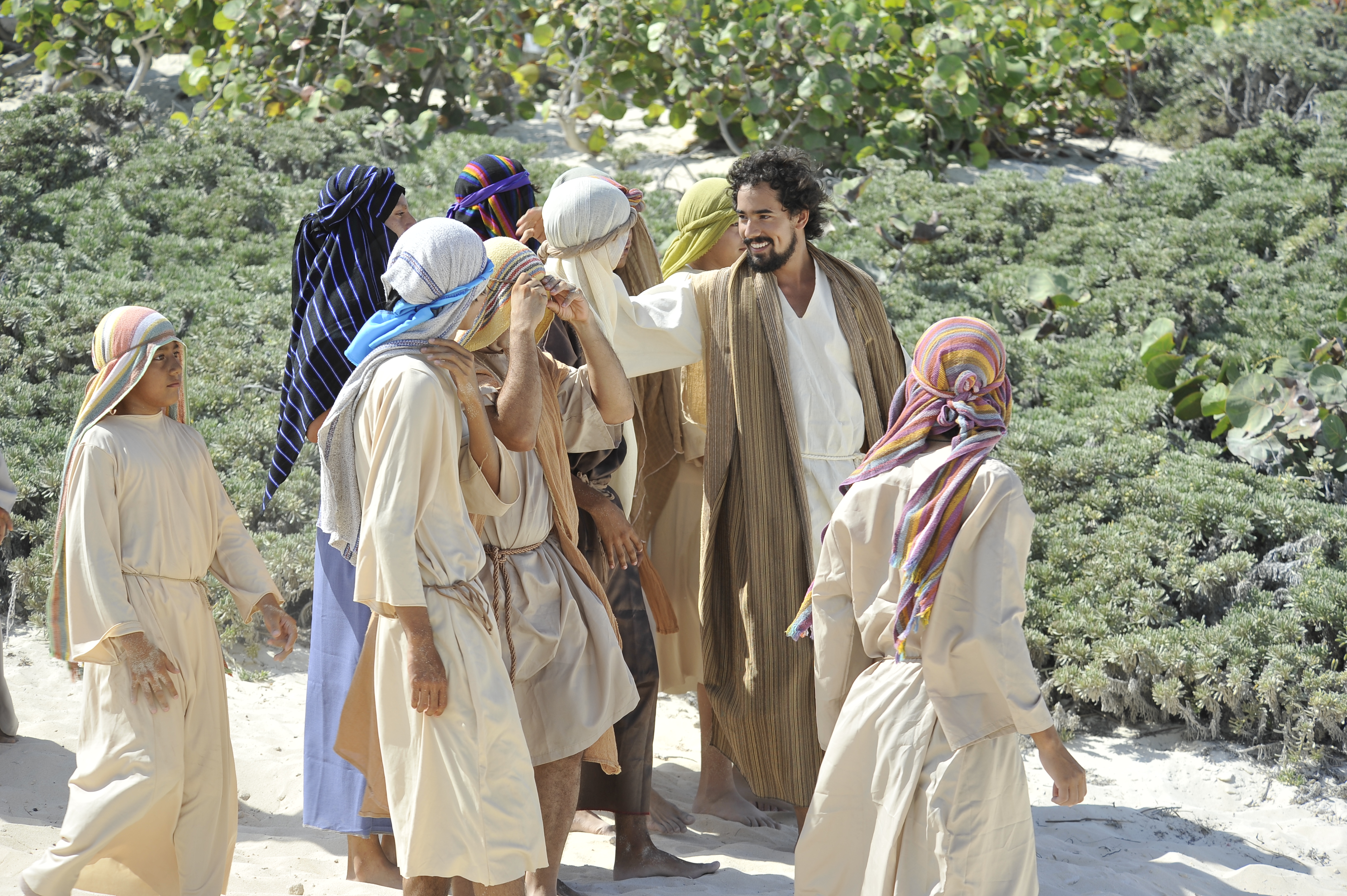
 Susan Ciancio has a BA in psychology and a BA in sociology from the University of Notre Dame, with an MA in liberal studies from Indiana University. For the past 19 years, she has worked as a professional editor and writer, editing both fiction and nonfiction books, magazine articles, blogs, educational lessons, professional materials and website content. Thirteen of those years have been in the pro-life sector. Currently Susan freelances and writes weekly for HLI, edits for American Life League, and is the executive editor of Celebrate Life Magazine. She also serves as executive editor for the Culture of Life Studies Program—an educational nonprofit program for K-12 students. You can reach her at
Susan Ciancio has a BA in psychology and a BA in sociology from the University of Notre Dame, with an MA in liberal studies from Indiana University. For the past 19 years, she has worked as a professional editor and writer, editing both fiction and nonfiction books, magazine articles, blogs, educational lessons, professional materials and website content. Thirteen of those years have been in the pro-life sector. Currently Susan freelances and writes weekly for HLI, edits for American Life League, and is the executive editor of Celebrate Life Magazine. She also serves as executive editor for the Culture of Life Studies Program—an educational nonprofit program for K-12 students. You can reach her at 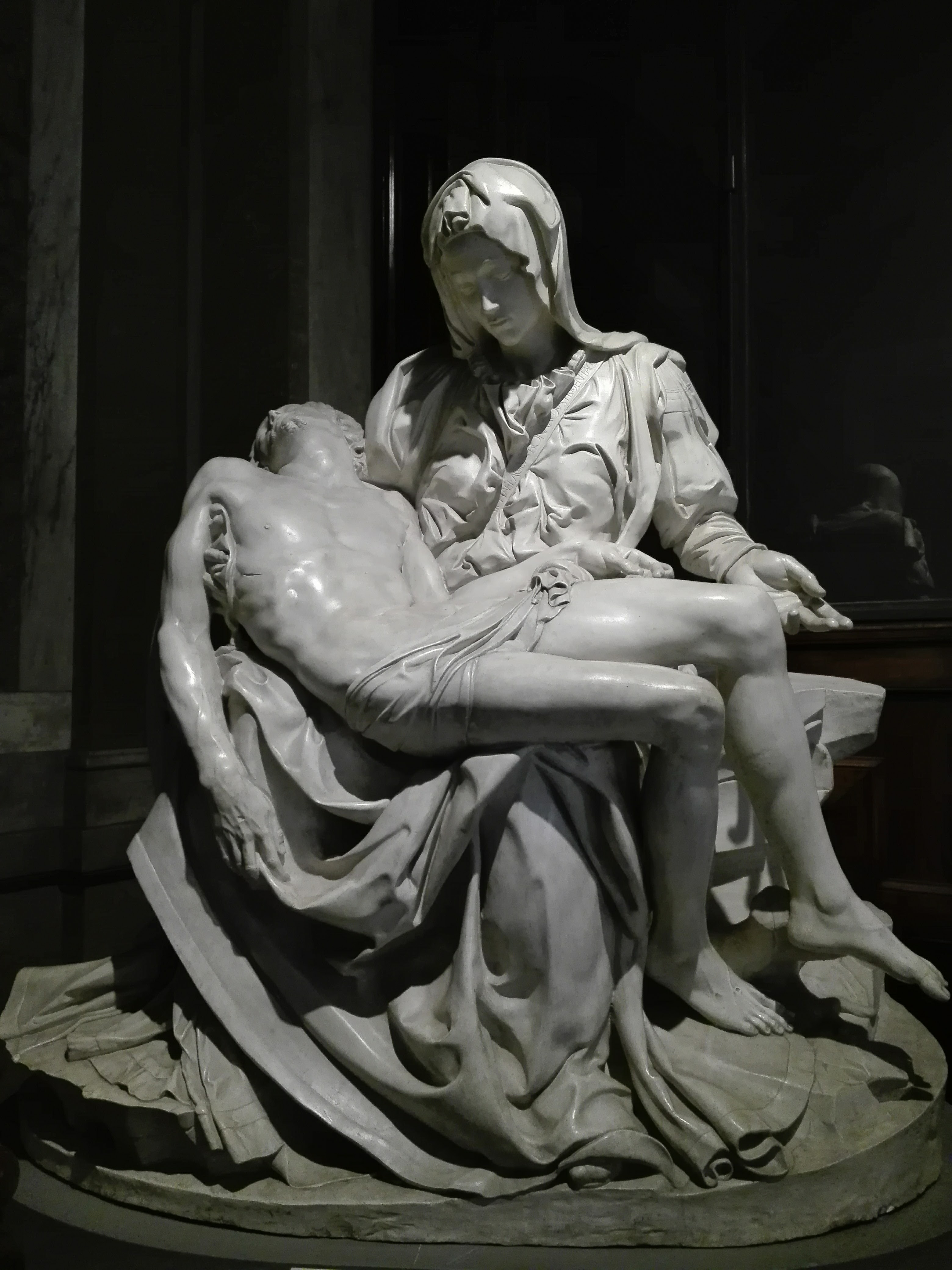
 Kathryn Mulderink, MA, is married to Robert, Station Manager for Holy Family Radio. Together they have seven children (including Father Rob), and four grandchildren. She is President of the local community of Secular Discalced Carmelites and has published five books and many articles. Over the last 30 years, she has worked as a teacher, headmistress, catechist, Pastoral Associate, and DRE, and as a writer and voice talent for Catholic Radio. Currently, she serves the Church by writing and speaking, and by collaborating with various parishes and to lead others to encounter Christ and engage their faith. Her website is
Kathryn Mulderink, MA, is married to Robert, Station Manager for Holy Family Radio. Together they have seven children (including Father Rob), and four grandchildren. She is President of the local community of Secular Discalced Carmelites and has published five books and many articles. Over the last 30 years, she has worked as a teacher, headmistress, catechist, Pastoral Associate, and DRE, and as a writer and voice talent for Catholic Radio. Currently, she serves the Church by writing and speaking, and by collaborating with various parishes and to lead others to encounter Christ and engage their faith. Her website is 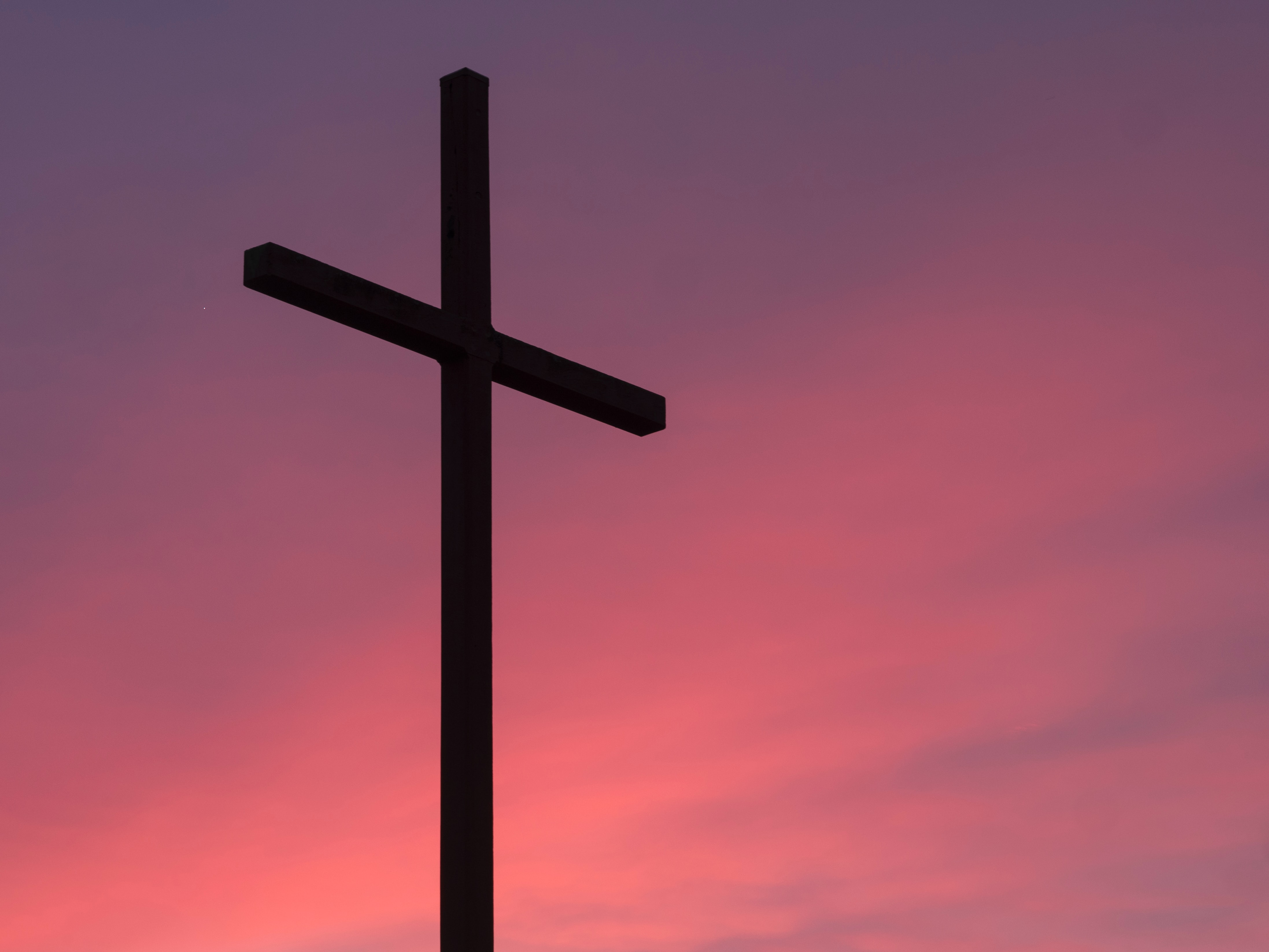

 Mike Karpus is a regular guy. He grew up in Michigan’s Upper Peninsula, graduated from Michigan State University and works as an editor. He is married to a Catholic school principal, raised two daughters who became Catholic school teachers at points in their careers, and now relishes his two grandchildren, including the 3-year-old who teaches him what the colors of Father’s chasubles mean. He has served on a Catholic School board, a pastoral council and a parish stewardship committee. He currently is a lector at Mass, a Knight of Columbus, Adult Faith Formation Committee member and a board member of the local Habitat for Humanity organization. But mostly he’s a regular guy.
Mike Karpus is a regular guy. He grew up in Michigan’s Upper Peninsula, graduated from Michigan State University and works as an editor. He is married to a Catholic school principal, raised two daughters who became Catholic school teachers at points in their careers, and now relishes his two grandchildren, including the 3-year-old who teaches him what the colors of Father’s chasubles mean. He has served on a Catholic School board, a pastoral council and a parish stewardship committee. He currently is a lector at Mass, a Knight of Columbus, Adult Faith Formation Committee member and a board member of the local Habitat for Humanity organization. But mostly he’s a regular guy.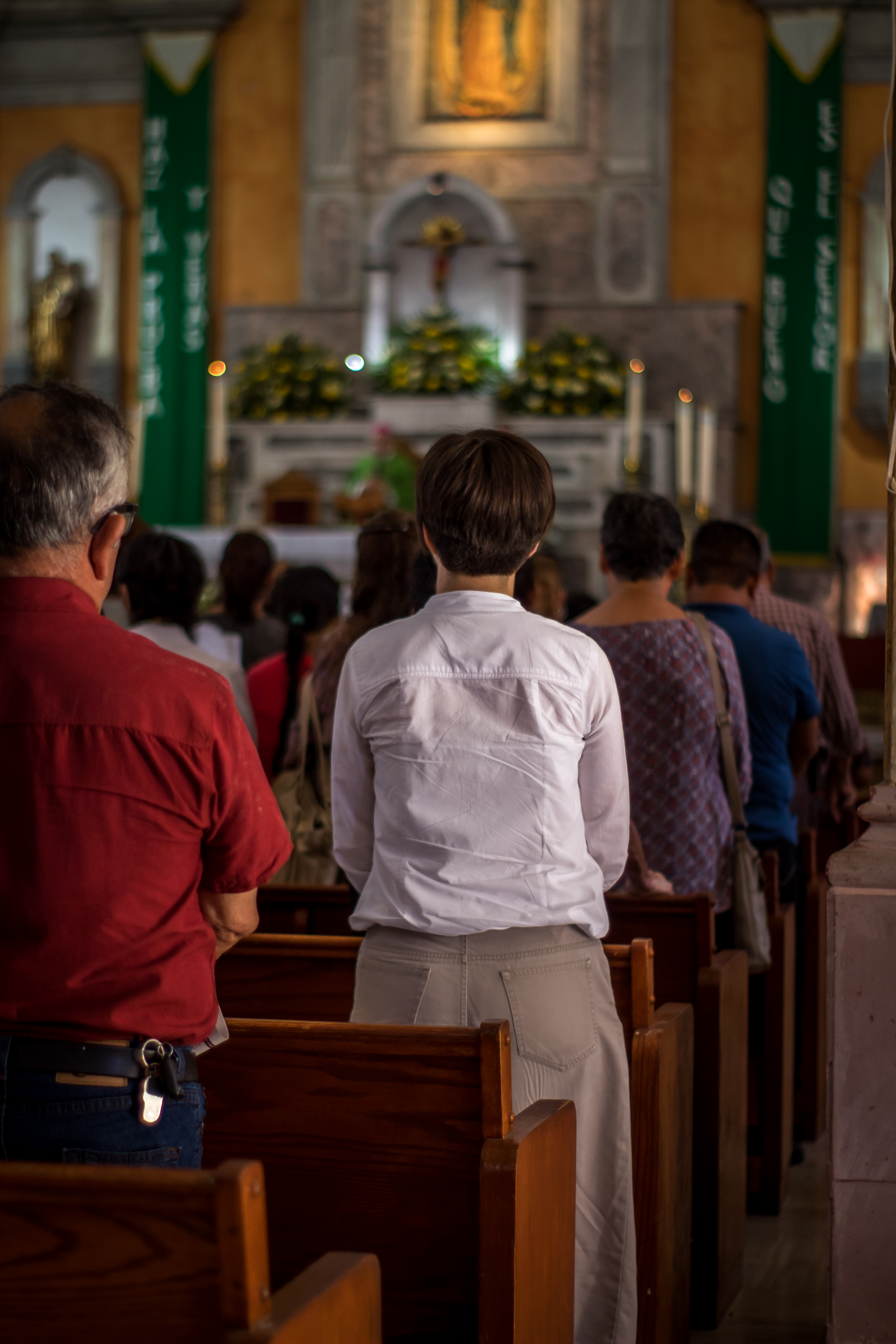
 Christine Hanus is a thwarted idealist who, nevertheless, lives quite happily in Upstate NY. She is a wife and mother of five grown children.
Christine Hanus is a thwarted idealist who, nevertheless, lives quite happily in Upstate NY. She is a wife and mother of five grown children.
 Tami Urcia grew up in Western Michigan, a middle child in a large Catholic family. She spent early young adulthood as a missionary in Mexico, studying theology and philosophy, then worked and traveled extensively before finishing her Bachelor’s Degree in Western Kentucky. She loves tackling projects, finding fun ways to keep her little ones occupied, quiet conversation with the hubby and finding unique ways to love. She works at for Christian Healthcare Centers, is a guest blogger on
Tami Urcia grew up in Western Michigan, a middle child in a large Catholic family. She spent early young adulthood as a missionary in Mexico, studying theology and philosophy, then worked and traveled extensively before finishing her Bachelor’s Degree in Western Kentucky. She loves tackling projects, finding fun ways to keep her little ones occupied, quiet conversation with the hubby and finding unique ways to love. She works at for Christian Healthcare Centers, is a guest blogger on 

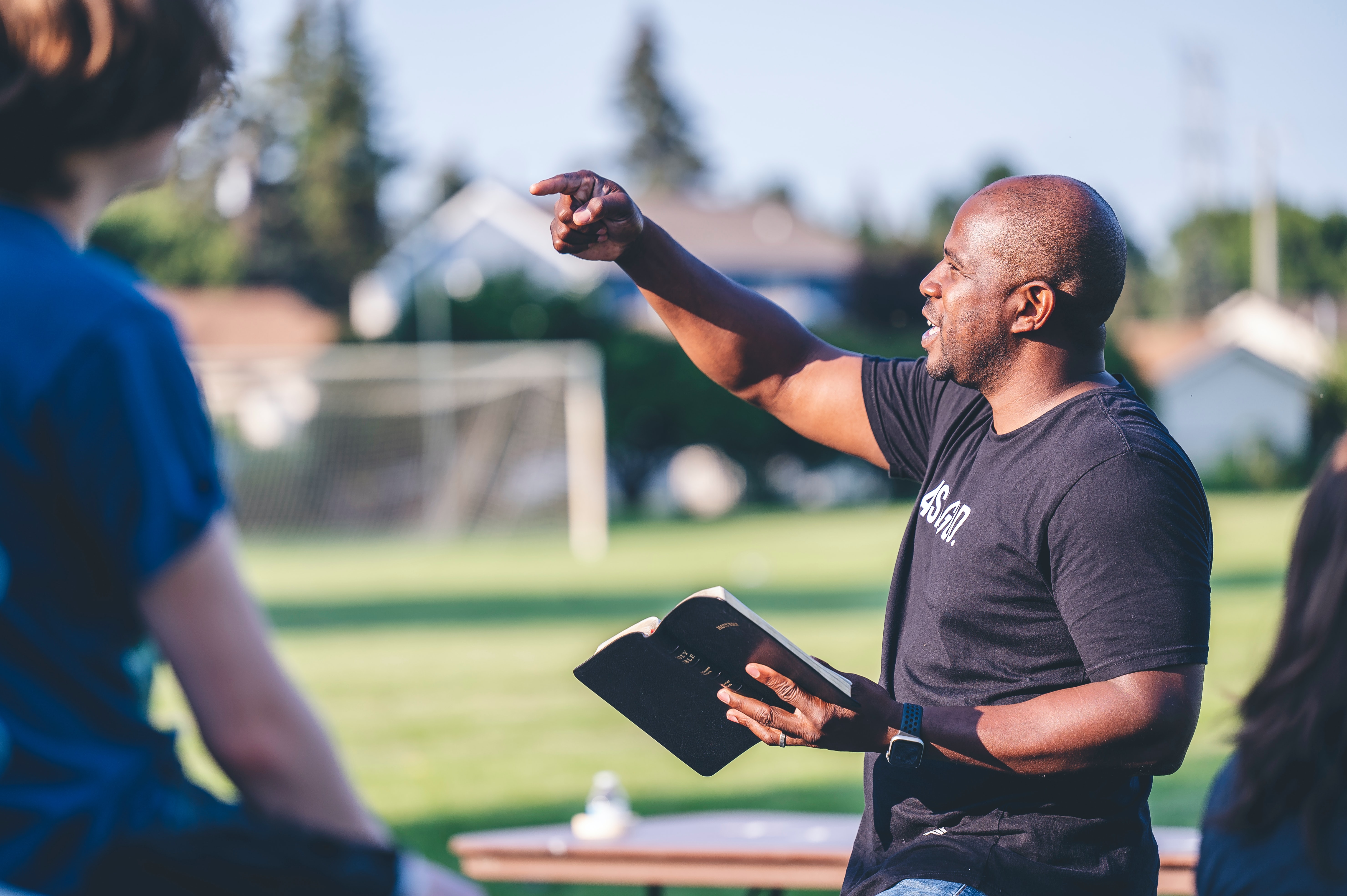


 Kate Taliaferro is an Air Force wife and mother. She is blessed to be able to homeschool, bake bread and fold endless piles of laundry. When not planning a school day, writing a blog post or cooking pasta, Kate can be found curled up with a book or working with some kind of fiber craft. Kate blogs at
Kate Taliaferro is an Air Force wife and mother. She is blessed to be able to homeschool, bake bread and fold endless piles of laundry. When not planning a school day, writing a blog post or cooking pasta, Kate can be found curled up with a book or working with some kind of fiber craft. Kate blogs at 
 Emily Jaminet is a Catholic author, speaker, radio personality, wife, and mother of seven children. She earned a bachelor’s degree in mental health and human services from the Franciscan University of Steubenville. She is the co-founder of
Emily Jaminet is a Catholic author, speaker, radio personality, wife, and mother of seven children. She earned a bachelor’s degree in mental health and human services from the Franciscan University of Steubenville. She is the co-founder of 
